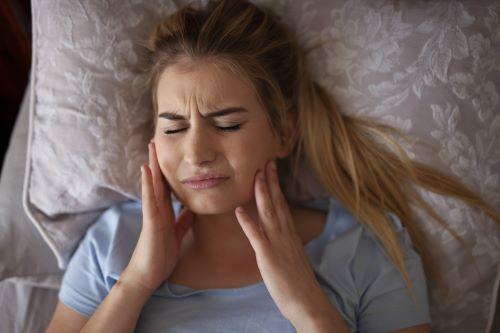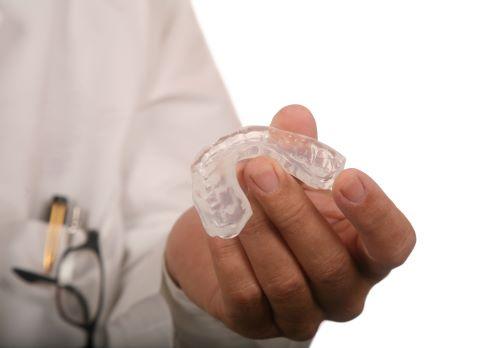TMJ/Bruxism Treatment
Have you ever woken up with unexplained jaw pain or a headache for no apparent reason? When you open and close your mouth, do you hear a clicking or popping sound? Are your teeth sensitive or hurt when you bite down on something? If you have any of these symptoms, you could be suffering from either bruxism or a TMJ disorder.
Fortunately, the expert dental team at Lake Five Dentistry can help diagnose and treat your bruxism and TMJ symptoms and help you get the relief you need. Keep reading to learn more.
What Is TMJ?
Your temporomandibular joint, or TMJ, is the joint that connects your jawbone to your skull. Your TMJ acts like a sliding hinge, so when it isn’t functioning correctly, you can suffer from TMD or temporomandibular joint disorder.
If you have any of the following symptoms, you may have TMD:
- Inability to open and close your mouth
- Jaw pain and inflammation
- Pain when you open or close your mouth
- A clicking or popping sound from your jaw
- A change in how your teeth fit together
- Headaches or migraine
- Teeth sensitivity
TMD disorders can be caused by several different factors, including:
- Stress
- Malocclusion (bite issues)
- Sleep apnea
- Trauma
- Clenching or grinding your teeth (bruxism)
What Is Bruxism?
When you clench or grind your teeth, you have a condition known as bruxism, which can harm your teeth. Over time, bruxism can also damage the nerves, bones, and soft tissues that keep your teeth healthy. In severe cases, bruxism can lead to TMD.
If you have any of the following symptoms, you may have bruxism:
- Tooth wear
- Tooth chipping or breaking
- Tooth sensitivity
- Jaw pain
TMD/Bruxism Treatment in Colgate
The dental team at Lake Five Dentistry can determine if you have TMD or bruxism and work to help you alleviate your symptoms. Once we have evaluated your situation, we may recommend the following treatment:
1. Stress management techniques such as exercise, relaxation, or meditation
2. Over-the-counter medications such as naproxen and ibuprofen
3. We can also create a customized occlusal guard that fits snugly over your top teeth. This mouthguard creates a barrier between your top and bottom teeth and keeps them from coming into contact with each other. An occlusal guard can effectively protect your teeth from further damage and allow your TMJ to rest and recover.
Controlling Your TMD/Bruxism Symptoms
Even though you may not be in control of what is causing your symptoms, certain habits can make your symptoms worse, including:
- Using your teeth as tools
- Chewing on pens, pencils, or ice
- Taking large bites of food
- Clenching or grinding your teeth during the day
- Sleeping on your stomach
- Placing excess pressure on your neck and shoulders with poor posture
Need More Information about TMD/Bruxism?
At Lake Five Dentistry, we strive to help you achieve the best oral health possible. If you are showing signs of either TMD or bruxism, please get in touch with our dental office. We can help you manage your symptoms and work to eliminate them. You can reach us by calling (262) 628-0555.
We look forward to your call.

